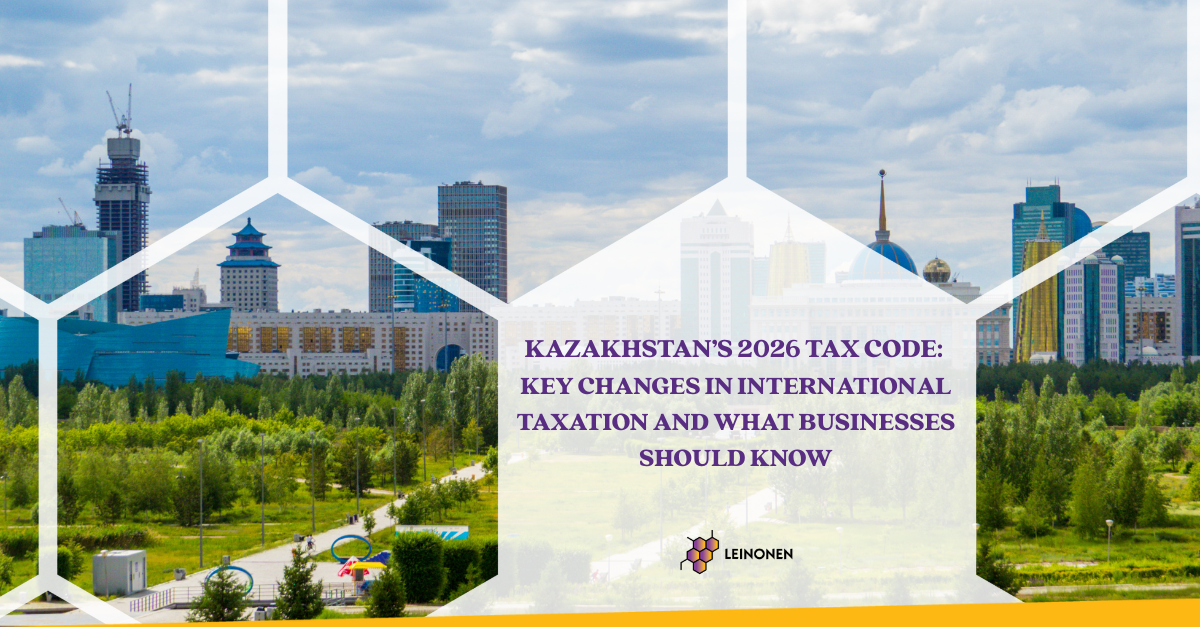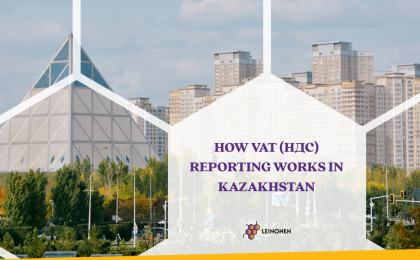Starting 1 January 2026, Kazakhstan will implement a new Tax Code that brings significant updates to international taxation rules, refining definitions, adjusting rates, and clarifying how income from foreign sources is treated. While the overall structure of taxation remains stable, the revisions aim to improve transparency and ensure fairer taxation of cross-border transactions.
Updated Definitions and Clarifications
The new legislation provides more precise explanations for several commonly used tax terms, helping taxpayers and authorities apply consistent interpretations.
- Royalties: The definition of royalties now explicitly includes payments for updating software versions. However, technical work such as fixing bugs or correcting system errors—activities that do not result in the creation or development of new software—is not considered a royalty and will therefore not be taxed under this category.
- Know-how and recruitment services: Both concepts now have legal definitions, reducing ambiguity in cross-border service agreements and helping businesses determine when withholding tax obligations apply.
New Rules for Non-Resident Income
From 2026, the taxation of non-resident income becomes more comprehensive. Certain services that were previously exempt or inconsistently taxed will now face a uniform 20% tax rate, regardless of where the services are performed.
The affected service categories include:
- Information processing
- Advertising
- Design
- Recruitment and staffing
This change aligns with Kazakhstan’s broader goal of taxing digital and cross-border services more effectively, ensuring fair competition between local and foreign providers.
Another important update concerns advance payments for goods or services purchased from non-residents. The time limit for recognizing an unfulfilled advance has been shortened from two years to twelve months. If the supplier fails to deliver within one year, the advance amount will be treated as taxable income.
Adjustments to Tax Rates
Several tax rates affecting non-resident income and foreign employee remuneration are being restructured:
- Dividends: For non-residents owning 25% or more of a Kazakh legal entity, income up to 230,000 MCI (approximately 904 million KZT in 2025) will be taxed at 5%, while any amount exceeding this threshold will be taxed at 15%.
- Foreign employees’ salaries: Income up to 8,500 MCI (around 33.4 million KZT in 2025) will be taxed at 10%, and income above that at 15%.
- Loan interest: The withholding tax rate on interest payments will be reduced from 15% to 10%, a move expected to encourage foreign lending and investment.
Additionally, retroactive bonuses granted when selling goods—often referred to as “retro bonuses”—will now be classified as marketing services and taxed accordingly.
What Stays the Same
Despite these updates, the core taxation principles and reporting procedures remain unchanged. Kazakhstan continues to apply its existing framework for withholding taxes, reporting timelines, and double taxation relief.
Special Considerations for Cross-Border Transactions
Businesses engaging with non-residents should review their contracts and payment flows in light of the new code. The following factors remain crucial when determining tax obligations:
- Whether the counterparty’s jurisdiction is listed as preferential (low-tax);
- Whether a double taxation avoidance treaty exists with that country;
- And where the services are physically rendered—within Kazakhstan or abroad.
For technology companies operating within Astana Hub, the tax exemption on payments to non-residents for income and royalties has been extended until 2029, preserving a key advantage for participants in the innovation ecosystem.
Make sure to contact your accountant and ask how the multitude of changes planned to go into effect in 2026 will affect your particular business.





